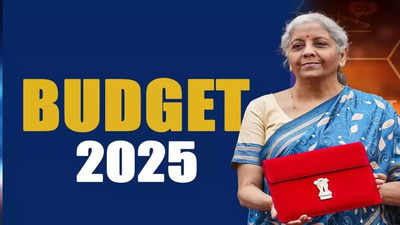In its first full Budget on July 23, 2024, the re-elected govt had announced a revamp of the Income-Tax Act to make it simpler and easier to understand. This exercise has commenced, and with Budget 2025 almost here, businesses are expecting simplification of the tax deduction at source (TDS) provisions as part of the Budget itself, as govt is stated to be committed to easing tax compliance.
The TDS system, a pivotal instrument for govt to pre-emptively collect taxes and gather transactional data, has become quite cumbersome over the years. A beginning to ease TDS compliance was made in Budget 2024 and one hopes this initiative continues in the coming Budget also.
The present TDS framework has been criticised for its complexity and the administrative burden it imposes on both tax deductors and deductees. In Budget 2024, govt took steps towards simplification by harmonising TDS rates to a uniform 2% for certain transactions and decriminalising delays in TDS payment up to the due date of filing the statement. However, there are several other complexities and there is a call for further simplification.
Confusion Galore:
The current labyrinth of TDS rates with 30-plus sections prescribing rates ranging from 0.1% to 30% has been a source of confusion for taxpayers. The current regime still contains multiple rates such as 0.1% (on sale of goods), 1%/ 2% (on contract payments), 5% (on insurance commission), 10% (on dividend and interest) and 30% on lottery winnings and cryptocurrency gains), to illustrate a few. TDS rates may vary depending on the payee’s status (company or non-company) and the nature of the payment. Thresholds also differ according to provisions, leading to a cumbersome process for payers.The rate differential also leads to classification challenges. For example, a rate of 2% is prescribed for fees for technical services while the same section provides for a rate of 10% on fees for professional services. As a result, payers tend to follow a conservative approach to avoid any tax challenges (such as disallowance of expenditure for short deduction of tax, and levy of penalty) and deduct tax at a higher rate in case of doubt.
The Solution: Simplification could involve rationalisation of TDS rates and reducing the existing multi-tier rate structure to just 3-4 rates. This, coupled with eliminating redundant provisions, would alleviate administrative burden, allowing businesses, particularly small and medium enterprises, to focus on growth and innovation.
Some of the TDS provisions were introduced by govt as a primary tool to collect information about the taxpayers such as TDS of sale of goods. With technological advancements and exchange of data between various departments such as with GST authorities, enough data is available with the government. In fact, due to the receipt of data in multiple formats and from multiple sources, there are often challenges in reporting at the tax department’s end as well (such as disclosures in annual information statements). Hence, doing away with such TDS (introduced with the aim of data collation) can be considered.
The Income-Tax Act has provisions for prosecution in case of wilful default in paying TDS. At present, however, there are no timelines prescribed for initiation and completion of such proceedings. Introducing time limits can lead to the proceedings being completed in a time bound manner and companies or directors will not have a sword hanging over them.
The upcoming Budget is a good opportunity for govt to kickstart more simplification initiatives. A reduced compliance burden could translate into significant cost savings and operational efficiencies for businesses. The hope is that Budget 2025 will usher in a new era for the TDS system, making it more equitable, efficient, and straightforward.
(The writer is director, tax & regulatory services, EY India. With inputs from Aviral Godha, senior manager, EY India. Views expressed are personal)






Comments are closed.